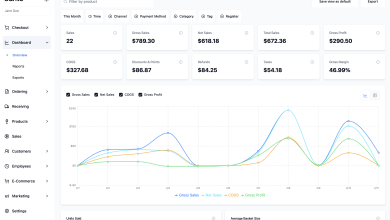
Artificial intelligence has swept across the globe, infiltrating numerous sectors and embedding itself into quotidian operations. Although its presence has been felt for decades, it is now manifesting itself with greater prominence in an array of fields, not least of which is property management. In this discourse, we shall delve into the utilization of AI within the realm of property management and explore the merits and drawbacks of employing such technology to streamline managerial functions.
What Is Artificial Intelligence?
Artificial Intelligence (AI) encompasses machines and computer systems that emulate human cognition to execute tasks. In today’s landscape, AI has permeated a multitude of industries, aiding both individuals and enterprises in optimizing routine activities. For landlords and property managers in Philadelphia, comprehending the potential of AI to refine business processes is crucial.
AI systems vary significantly, with new advancements continually emerging. Here are the four primary evolutionary stages in AI development:
- Reactive Machines – These systems operate solely on predefined rules, responding to stimuli without any memory or learning capability. They cannot adapt based on new data or past interactions.
- Limited Memory – These AI systems retain data and leverage past experiences to make decisions, albeit within a restricted scope.
- Theory of Mind – Still under development, Theory of Mind AI aspires to grasp human emotions and beliefs, facilitating more natural and intuitive interactions with people.
- Self-Aware – This futuristic concept envisions AI with a consciousness of its existence, enabling it to refine its functionality. Like Theory of Mind AI, Self-Aware AI remains in the developmental stages.
How Is AI Used in Property Management?
A key area where AI is making substantial strides is in property management software tailored for landlords. These integrated systems leverage AI algorithms to provide comprehensive solutions, managing everything from tenant applications to financial tracking. The software can automate routine tasks such as rent collection, maintenance requests, and tenant screening, thereby significantly reducing the administrative burden on landlords. Additionally, these platforms often include features for data analytics, offering insights into tenant demographics, property performance, and market trends. By integrating AI with property management software, landlords can optimize operational efficiency, reduce costs, and enhance tenant satisfaction.
Let’s explore some of the specific areas where AI is transforming property management.
1. Predictive Maintenance
Studies show that predictive maintenance powered by AI can reduce equipment downtime by up to 50% and extend the lifespan of equipment by 20-30%. According to a report by Deloitte, predictive maintenance can lead to a 10-15% reduction in maintenance costs.
2. Chatbots and Virtual Assistants:
AI-driven chatbots and virtual assistants have become invaluable tools in the realm of property management. While personal interaction with a human remains ideal, these digital assistants excel at managing routine tenant communications. They can efficiently handle inquiries, schedule maintenance appointments, and provide information on property policies. By offering instant responses to frequently asked questions, chatbots enhance the tenant experience and ensure that assistance is available around the clock.
3. Data Analysis
According to a report by McKinsey, AI-driven data analysis can improve decision-making efficiency by up to 50% and enhance forecasting accuracy for market trends by 25%. This allows property managers to better anticipate market changes.
AI’s capacity for data analysis is transformative for property management. Advanced algorithms sift through extensive datasets to uncover patterns, trends, and actionable insights. This capability optimizes rental pricing, anticipates market movements, and supports data-driven decision-making. As a result, property managers enhance operational efficiency, boost profitability, and maintain a competitive advantage in the marketplace.
 4. Security Enhancement
4. Security Enhancement
Security is a paramount concern for most renters, and AI has brought significant advancements in this area. AI-powered surveillance systems are equipped with capabilities such as facial recognition and anomaly detection, which help identify potential security threats. These systems provide real-time alerts, enabling swift responses to incidents. Enhanced security measures foster a safer environment for tenants and protect the property, minimizing the risks of unauthorized entry and criminal activities.
5. Lease Management
AI plays a pivotal role in lease management by automating various administrative tasks. From processing documents and creating leases to monitoring compliance, AI systems streamline these processes. They help property managers organize and track crucial lease-related information, significantly reducing the likelihood of errors. By automating these tasks, AI not only saves time but also ensures adherence to lease agreements, facilitating smoother operations and greater efficiency.
6. Energy Efficiency
Energy conservation is a crucial concern for both tenants and property owners, and AI offers valuable solutions in this domain. AI systems enhance energy efficiency by analyzing consumption patterns and adjusting building systems, such as heating, ventilation, and air conditioning (HVAC), to optimize usage. This intelligent management of energy resources leads to significant cost savings and promotes sustainability by reducing wasteful consumption. As a result, both tenants and landlords benefit from lower energy bills and a more environmentally friendly property.
7. Document Management
In property management, handling a vast array of documents is an essential yet cumbersome task. This includes everything from lease agreements and maintenance logs to rent invoices. AI streamlines document management by automating the processing, organization, and retrieval of these critical records. With AI, property managers can efficiently manage leases, invoices, and other essential documents, reducing the need for manual paperwork. This automation enhances overall organization, minimizes the risk of errors, and ensures that important documents are readily accessible when needed, thereby improving operational efficiency.
Top Features to Look for in Property Management Software for Landlords
Managing rental properties can be a complex and time-consuming task for landlords. From handling tenant communications to tracking maintenance requests, the responsibilities are endless. This is where property management software for landlords comes into play.
The right software can simplify your workload, improve efficiency, and help you manage your properties more effectively. Here are the top features to look for:
- Tenant and Lease Tracking: The software should allow you to keep detailed records of tenant information, lease terms, and rent payment history. This helps manage lease renewals, track tenant communication, and ensure timely rent collection.
- Rent Collection and Financial Management: Look for software that supports online payments, automated reminders for due rent, and late fee calculations. Financial management tools that track income and expenses, generate financial reports, and integrate with accounting software can significantly streamline your financial operations.
- Maintenance Management: The software should offer a maintenance management feature that allows tenants to submit requests online, track the progress of each request, and communicate with service providers. This ensures timely resolution of maintenance issues.
- Communication Tools: The software should include tools for sending mass notifications, individual messages, and reminders to tenants. Features like automated email and SMS notifications can help keep everyone informed and reduce misunderstandings.
- Document Management: Look for software that provides a centralized location for storing leases, legal documents, receipts, and other important files. This makes it easy to retrieve and share documents when needed.
- Reporting and Analytics: The software should offer customizable reports on rent collection, maintenance costs, occupancy rates, and more. These insights can help you make informed decisions and improve your overall management strategy.
- Mobile Accessibility: A landlord property management app that offers mobile accessibility allows you to handle tasks from your smartphone or tablet, ensuring you can stay on top of things even when you’re not at your desk.
Advanced Features to Consider
In addition to the essential features, some advanced features can further enhance your property management experience:
- Automated Marketing and Leasing: Automated marketing tools can help you advertise vacant properties on multiple listing sites, schedule showings, and process applications. This reduces the time and effort required to find new tenants and ensures your properties are occupied quickly.
- Tenant Screening: A built-in tenant screening feature can streamline the process of evaluating prospective tenants. Look for software that offers background checks, credit reports, and rental history verification. This helps in selecting reliable tenants and reducing the risk of future issues.
- Integration with Other Systems: The software should integrate with other systems you use, such as accounting software, payment gateways, and customer relationship management (CRM) tools. This ensures data consistency and reduces the need for manual data entry.
- Customization Options: Software that offers customization options allows you to tailor the system to your specific requirements. Whether it’s customizing reports, workflows, or user permissions, having the flexibility to adapt the software to your needs can enhance its usefulness.
Evaluating Property Management Software
Choosing the right property management software requires careful evaluation. Here are some steps to help you make an informed decision:
- Identify Your Needs: Start by identifying your specific needs and pain points. What tasks do you want to automate? What features are most important to you? Understanding your requirements will help you narrow down your options.
- Research and Compare Options: Research different property management software options and compare their features, pricing, and user reviews. Look for software that aligns with your needs and has a good reputation for reliability and customer support.
- Take Advantage of Free Trials: Many software providers offer free trials. Take advantage of these trials to test the software and see how it performs in real-life scenarios. This hands-on experience can give you a better understanding of the software’s capabilities and ease of use.
- Consider Scalability: As your property portfolio grows, your software needs may change. Choose a solution that can scale with your business and accommodate additional properties, users, and features as needed.
- Seek Feedback from Other Landlords: Reach out to other landlords and property managers to get their feedback on the software they use. Their insights and experiences can provide valuable guidance and help you avoid potential pitfalls.
Pros and Cons of Using AI in Property Management
While AI technology is not a novelty, its applications in everyday tasks are expanding, offering practical solutions across various fields. Nevertheless, despite its advancements, AI cannot entirely supplant the nuances of human interaction. Below are some of the advantages and disadvantages of integrating AI into property management.
Benefits of AI in Property Management
- Improved Tenant Experience
Although AI cannot completely replace human interaction, AI-powered chatbots can provide immediate responses to tenant inquiries, ensuring quick and efficient communication. This immediacy enhances tenant satisfaction by offering swift resolutions to common issues and questions. - Lease Management Automation
AI streamlines lease management by automating tasks such as document processing and compliance monitoring. This reduces the administrative workload, minimizes the likelihood of errors, and ensures adherence to regulations, making lease management more efficient and less time-consuming. - Data-Driven Decision Making
Property management involves handling vast amounts of data, which can be overwhelming for humans to process manually. AI excels at analyzing large datasets quickly and accurately, offering valuable insights. This allows property managers to make well-informed decisions and optimize property performance, ultimately leading to better business outcomes.
Disadvantages of AI in Property Management
- Initial Costs
The deployment of AI systems often involves considerable expenses. Property managers must invest in appropriate technologies, ensure proper implementation, and provide training for staff. These steps can entail significant upfront costs, both in terms of financial investment and time. - Technical Challenges
AI systems are not infallible and can encounter technical issues or glitches, necessitating troubleshooting and regular maintenance. Additionally, while AI can process large volumes of data, it is not immune to making mistakes, which can result in minor inaccuracies or errors. - Lack of Human Touch
Despite the efficiencies introduced by AI, it lacks the personal touch and empathy inherent in human interaction. While AI can handle routine tasks effectively, it cannot replace property managers entirely. Tenants may still prefer to engage with human staff for more complex matters, such as lease negotiations or addressing unique concerns, where a human perspective and nuanced understanding are valuable.



 4. Security Enhancement
4. Security Enhancement




